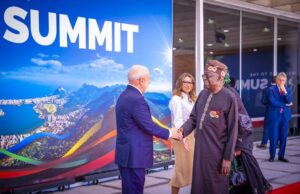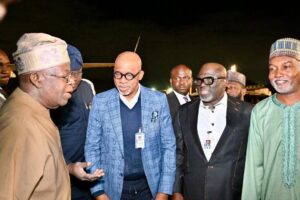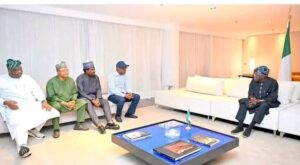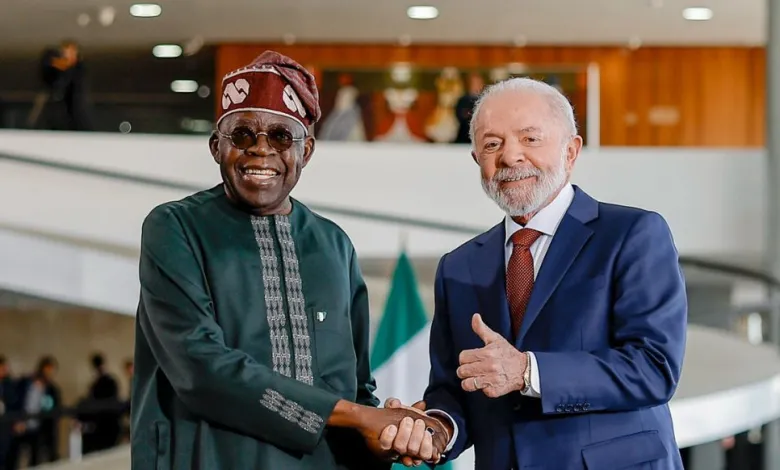Tinubu’s Brazil State Visit — With State Governors in Tow — Targets Concrete Wins for Nigerians
Brasília, August 25, 2025. President Bola Ahmed Tinubu, GCFR, was received with full military honours by President Luiz Inácio Lula da Silva at the Palácio do Planalto today, kicking off a state visit built around deals in aviation, agriculture, energy, and investment facilitation. The official schedule also features a Brazil–Nigeria Business Forum bringing together policymakers and private-sector leaders.
Crucially, several Nigerian state governors have joined the delegation to court investors for their states; Plateau’s Governor Caleb Mutfwang publicly confirmed his participation.
> “Today’s engagement marks the renewal of the historic relationship between Nigeria and Brazil… to deepen cooperation in agriculture, energy, trade, and culture,” President Tinubu said after the Planalto ceremony.
1) Direct air links (BASA): Nigeria and Brazil are moving to unlock non-stop flights across the South Atlantic. Leadership reported today that a Bilateral Air Services Agreement (BASA) has been signed, while earlier guidance flagged a Brazil-leg MoU on direct flights during the visit. Direct connectivity lowers travel time/costs and is typically associated with higher trade and tourism flows.

2) Agriculture & agro-industry: Abuja and Brasília activated the commercial phase of the $1.1bn Green Imperative Project (GIP) in March—Brazilian-backed mechanisation (tractors/implements), extension services and local assembly—now being pushed toward delivery milestones. Officials have previously linked GIP to large-scale job creation in manufacturing, services and primary production.

3) Deal pipeline from June’s Abuja dialogue: In June, the Nigeria–Brazil Strategic Dialogue in Abuja previewed ~30 MoUs and a bilateral business forum—today’s Brazil forum is the mirror step aimed at turning MoUs into contracts, with talk tracks spanning livestock, energy, security, tourism, and creative co-production.

4) Macroeconomic backdrop: Nigeria ended 2024 with a $6.83bn balance-of-payments surplus after reforms—useful tailwinds when pitching projects to Brazilian investors and lenders.

The facts & figures: Nigeria/Brazil today
- Goods trade (2024): Brazil exported US$977.5m to Nigeria. Year-on-year, Brazil→Nigeria exports rose sharply into mid-2025 while Nigeria→Brazil exports dipped—underscoring the room to grow Nigeria’s sales once logistics improve.
- Sectors with immediate traction: Aviation (BASA/direct flights), agri-mechanisation & livestock, energy & biofuels, defence/tech cooperation, and audio-visual/tourism (from the Abuja track).

Why Governors presence will make a difference!
State governments control land banks, sub-national incentives, right-of-way for infrastructure, and vocational ecosystems. Having governors in the room accelerates due-diligence and permitting, reducing the “federal-says-yes, state-says-maybe” friction that often stalls foreign projects. Plateau’s inclusion has been confirmed publicly; other governors are participating in the forum alongside federal MDAs.

Reality check: Taking governors on foreign economic missions is not unprecedented (e.g., previous administrations did so on China trips); what’s different here is the explicit sub-national investment pitch tied to a ready pipeline (BASA, GIP, Abuja MoUs) and a same-week business forum on the host’s turf.
Concrete impacts Nigerians should expect (and how to measure them)
1. Flights & freight:
Output: Published BASA and named carriers with target start dates/routes.
Impact metric: lower Lagos–São Paulo journey time; higher Nigeria–Brazil pax & belly-cargo volumes within 12–18 months.

2. Agri-mechanisation (GIP):
Output: Signed call-offs for tractor/implement assembly, service centres, and farmer credit windows.
Impact metric: tractors deployed, hectares mechanised, MSMEs onboarded; job counts in assembly/service.
3. Livestock & value chains:
Output: State-level MoUs for ranching, feed, vet services.
Impact metric: dairy/meat yields, disease-control coverage, private capex attracted.

4. Creative/tourism tie-ins:
Output: Co-production agreements, festival exchanges;
Impact metric: project slates green-lit; two-way tourist arrivals after direct flights.
Voices from the trip
Tinubu (at Planalto): “Renewal of the historic relationship… deepen cooperation in agriculture, energy, trade, and culture.”
Kaduna’s Gov. Uba Sani (media hit in Brasília): The visit is expected to “enhance agreements” and channel investment into growth sectors.
Official schedule (media briefings): Meetings with Brazil’s Senate, Chamber of Deputies and Supreme Federal Court; participation in the Brazil–Nigeria Business Forum.

Risks to watch
- MoU fatigue: Announcements without dated delivery milestones risk fading. Insist on quarterly scorecards from both sides.
- Airline economics: Direct routes fail if load factors don’t pencil out. Hardwire traffic rights, code-shares, and marketing support into BASA follow-ups.
- FX & financing: Project finance must navigate Nigeria’s FX regime; use export-credit, blended finance, and local-currency trade windows to de-risk.
Conclusion
This state visit has clear, testable deliverables: a BASA that finally unlocks direct flights, an agriculture agenda already capitalised at $1.1bn, and a June-born pipeline of ~30 MoUs ready for conversion.
Bringing governors into the room should speed state-level execution. If the signings are tied to timelines and KPIs, Nigerians should see tangible benefits—cheaper logistics, more farm machinery on the ground, deeper markets for our exports, and real jobs—not just photo-ops in Brasília.
#PBATInBrazil — Filed for Headlinenews.news.




